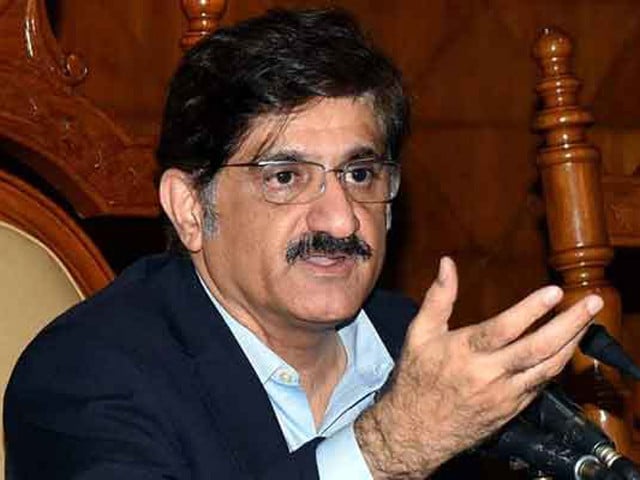From Zeeshan Mirza
KARACHI: Chief Minister Sindh Murad Ali Shah responded strongly to Indian Defence Minister Rajnath Singh’s statement regarding Sindh, declaring that Sindh is an integral and indivisible part of Pakistan.
In his reaction to the Indian Defence Minister’s venomous comments against Pakistan, the CM Sindh said that Sindh was, is, and will remain a part of Pakistan.
Murad Ali Shah urged the Indian extremist leader of the Bharatiya Janata Party (BJP), which believes in Hindutva, to concentrate on India’s internal divisions and stop dreaming about “us, Sindh”.
He stated that the Indian Defence Minister is unaware of history, adding that the Minister’s statement is diplomatically irresponsible.
Highlighting Sindh’s historic move before partition, Murad Ali Shah said that Sindh separated itself from the Bombay Presidency back in 1936, before the establishment of Pakistan.
“The people of Sindh chose autonomy, respect, and preferred their political identity,” he said.
The CM Sindh categorically said that Sindh is and will always remain an integral part of Pakistan.
Yesterday, Pakistan has strongly condemned the remarks made by Indian Defense Minister Rajnath Singh regarding Pakistan’s Sindh province, calling them “delusional” and “dangerously revisionist.”
In an official statement, the Foreign Office said such statements reflect an expansionist Hindutva mindset that challenges established realities and violates international law, including the inviolability of recognized borders and state sovereignty.
Pakistan urged Rajnath Singh and other Indian leaders to avoid provocative rhetoric that threatens regional peace and stability.
The Foreign Office urged that India would be better served by focusing on the security of its own citizens, particularly vulnerable minority communities, and addressing discrimination rooted in faith-based prejudice and historical distortions.
The statement also highlighted India’s responsibility to address persistent grievances in its northeastern regions, where communities face systematic marginalization, identity-based persecution, and cycles of state-enabled violence.
Pakistan called on India to take credible steps toward a genuine resolution of the Jammu and Kashmir dispute in accordance with UN Security Council resolutions and the aspirations of the Kashmiri people living under occupation.
The Foreign Office reiterated that Pakistan remains committed to the peaceful resolution of all disputes with India based on justice, equity, and international legal norms, while remaining resolutely determined to safeguard its national security, independence, and sovereignty.




